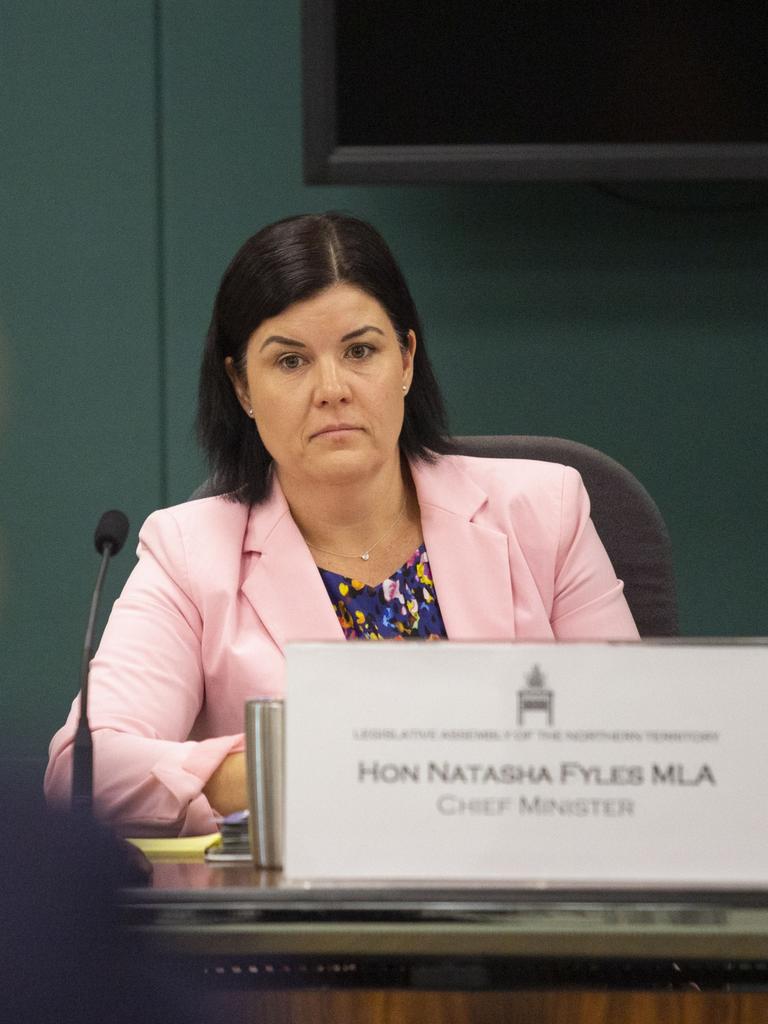NT Liquor Act changes allow booze to flow in community for first time in 15 years
‘Rivers of grog’ will flow in remote NT communities from Sunday for the first time in 15 years following a controversial policy shift.
SEVEN Aboriginal communities have chosen to remain as dry areas following a controversial decision to overturn a longstanding ban on booze sales for more than 400 remote communities.
This Sunday, alcohol will legally flow into previously dry communities across the Territory for the first time in 15 years.
The changes come as a result of the Associations and Liquor Amendment Bill 2022, which passed through parliament in May despite outcry from Aboriginal medical groups, legal advocates, social services, and the NT Police Association.
Communities were given the choice to ‘opt-in’ to a two-year extension to their dry community status.
On Friday, Liquor Licensing director Philip Timney declared an extension to alcohol bans for the Bagot, Bulman, Jodetluk, Knuckey Lagoon Indigenous Village, Palmerston Indigenous Village, Railway Dam, and Weemol community areas.
A spokeswoman for Chief Minister Natasha Fyles said 10 other communities were also in discussions to remain alcohol protected areas, with the deadline to sign up set for January 31, 2023.
“These restrictions are not designed to be permanent but allow those communities extra time to more closely consider their long-term alcohol aspirations,” the spokeswoman said.

She said the changes did not impact 112 communities, which were General Restricted Areas prior to the 2007 Intervention.
However, the Central Australian Aboriginal Congress said more than 400 communities would be affected by the Liquor Act changes.
Ms Fyles’s spokeswoman said the changes brought to an end the “last living remnants of the Intervention”, ending the “race-based policy targeting Aboriginal Territorians with little to no engagement”.
However, the decision to lift the longstanding bans were widely rebuked for a lack of consultation.
Congress, Aboriginal Medical Services Alliances, NAAJA, Aboriginal Housing NT and PAAC all called for more time before 15 years of Alcohol Protected Area policies were swept away.
AMSANT chief executive John Paterson said the NT already had the highest per capita rate of alcohol consumption, with concerns the return of takeaway alcohol could devastate regional areas.

“(This) will bring about an immediate increase in alcohol intake in certain communities and homelands, and in turn this could lead to an increase in alcohol-fuelled violence and crime,” Dr Paterson said.
He said Aboriginal community control was important but the “11th hour” consultations had not allowed them to have the time to discuss, make informed decisions and then implement strategies to minimise harms.
“The critical thing now is that good data is publicly available in a timely way so the extent of the increased harms can be monitored and then acted on relatively quickly if it is as bad as we expect,” Dr Paterson said.
Commander Daniel Bacon said NT Police had not increased their resources to previously dry communities but they would work with communities to “address any issues that may arise”.
Association of Alcohol and other Drug Agencies NT chief executive Peter Burnheim called for more support from the Territory and federal governments to minimise the harm from the return of alcohol.
“Communities must lead the decision on whether or not alcohol returns but this must be understood with a health equity perspective,” Mr Burnheim said.

“Further resourcing is needed to support communities through informed consultation, auditing of resources to support alcohol harm minimisation, and facilitating community decision-making and implementation processes.”
When the legislation was debated in May, Congress chief executive officer Donna Ah Chee warned that “the ‘rivers of grog’ will once again flow through our communities”.
“Anyone who lived in Alice Springs through the early 2000s will remember that we were the stabbing capital of the world according to the head surgeon of the Alice Springs Hospital and we had a terrible run of premature deaths attributable to alcohol,” she said.
“A lot of hard work and evidence-based policy reforms have helped to turn this around.”





